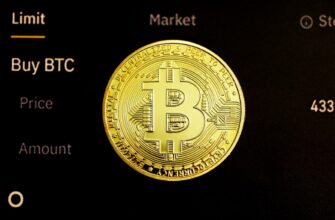In Bangalore’s thriving tech ecosystem, the demand for flexible crypto trading options like exchanging USDT (Tether) via PayPal is surging. This comprehensive guide explores safe, efficient methods to trade USDT with PayPal in India’s Silicon Valley while navigating local regulations.
## Why Bangaloreans Choose PayPal for USDT Trading
Bangalore’s digital-savvy population increasingly uses PayPal for crypto transactions due to:
– **Instant settlement**: Receive funds in minutes versus traditional banking delays
– **Global accessibility**: Seamlessly trade with international partners
– **User-friendly interface**: Simplified process for beginners
– **Enhanced security**: Robust buyer/seller protection mechanisms
– **Rupee integration**: Direct INR withdrawals to local bank accounts
With over 40% of India’s crypto traders based in Karnataka, Bangalore leads in adopting hybrid payment solutions that bridge traditional finance and digital assets.
## Step-by-Step Process to Trade USDT with PayPal in Bangalore
Follow this verified method to exchange Tether via PayPal while complying with Indian regulations:
1. **Select a P2P Platform**: Register on exchanges like Binance P2P or Paxful that support PayPal-USD pairs
2. **Complete KYC**: Submit PAN card and Aadhaar verification per Indian crypto guidelines
3. **Create Trade Offer**: Specify amount (e.g., 100 USDT) and preferred PayPal payment terms
4. **Initiate Escrow**: Platform locks your USDT until payment confirmation
5. **Receive PayPal Payment**: Buyer sends INR equivalent via PayPal Goods & Services
6. **Confirm Receipt**: Verify funds in your PayPal account (check transaction fees)
7. **Release USDT**: Finalize trade in platform interface
8. **Withdraw INR**: Transfer PayPal balance to your Bangalore bank account (typically 2-5% fees)
Always use platform chat for communication and never share personal PayPal credentials.
## Top 5 Platforms for USDT/PayPal Trading in Bangalore
Based on security, liquidity, and Bangalore user reviews:
1. **Binance P2P**
– Pros: High liquidity, 0% trading fees, 300+ payment methods
– Cons: Requires advanced verification
2. **Paxful**
– Pros: Escrow protection, 350+ payment options
– Cons: Higher premium on USDT rates
3. **LocalBitcoins** (supports USDT)
– Pros: Established reputation, customizable offers
– Cons: Limited Indian rupee pairs
4. **Bybit P2P**
– Pros: Low spreads, instant order matching
– Cons: Smaller user base
5. **CoinSwitch**
– Pros: INR-focused, beginner-friendly
– Cons: Higher processing fees
## Legal Compliance and Tax Considerations
When trading crypto in Bangalore:
– **TDS Compliance**: 1% tax deducted at source on all trades exceeding ₹10,000
– **Income Tax**: Crypto profits taxed at 30% + 4% cess under Section 115BBH
– **Regulatory Status**: Trading permitted but not legal tender (RBI circular May 2022)
– **Record Keeping**: Maintain transaction logs for 7 years per Income Tax Act
– **GST Applicability**: 18% GST on exchange service fees
Consult Bangalore-based crypto tax experts like Cleartax or Taxnodes for personalized advice.
## Safety Measures for Bangalore Traders
Protect your transactions with these essential practices:
– **Escrow Verification**: Confirm funds are held in escrow before releasing crypto
– **Screenshot Evidence**: Document all transaction steps and chat logs
– **Two-Factor Authentication**: Enable 2FA on both PayPal and exchange accounts
– **Limit Testing**: Start with small amounts (e.g., 10 USDT) for new trading partners
– **Avoid Public WiFi**: Use VPNs when trading in Bangalore cafes/co-working spaces
Report suspicious activity to Cyber Crime Police Station (Cubbon Park) or CERT-In.
## Future of Crypto Payments in Bangalore
Emerging developments impacting USDT/PayPal trading:
– **UPI Integration**: Potential linkage with PayPal for faster INR settlements
– **Digital Rupee**: RBI’s CBDC may create new arbitrage opportunities
– **Global Crypto Hubs**: Bangalore’s 50+ blockchain startups driving payment innovations
– **Regulatory Clarity**: Expected 2024 crypto bill may formalize P2P trading frameworks
## Frequently Asked Questions (FAQ)
### Is USDT/PayPal trading legal in Bangalore?
Yes, but with tax compliance. The Supreme Court lifted RBI’s banking ban in 2020, allowing crypto trading with proper KYC and tax deductions.
### What are typical transaction fees?
Expect 3-7% total costs:
– PayPal transaction fee: 2.5% + ₹3
– Platform service charge: 0.1-1%
– TDS: 1%
– GST: 18% on service fees
### How long do transactions take?
Completed within 15-45 minutes typically:
1. Payment processing: 2-5 min
2. USDT release: Instant after confirmation
3. INR withdrawal: 3-5 business days to Bangalore banks
### Can I trade large volumes?
Most platforms impose limits:
– New users: ₹10,000-50,000 daily
– Verified users: Up to ₹10 lakhs daily
Requires enhanced KYC for higher limits.
### What are safer alternatives?
Consider these regulated options:
– Bank transfers via IMPS/NEFT
– Registered exchanges like CoinDCX or WazirX
– CBDC wallets (pilot phase in Bangalore)
Bangalore traders should balance PayPal’s convenience with platform security and regulatory compliance. Always verify counterparty ratings, maintain transaction records, and consult tax professionals to navigate this dynamic financial landscape.








